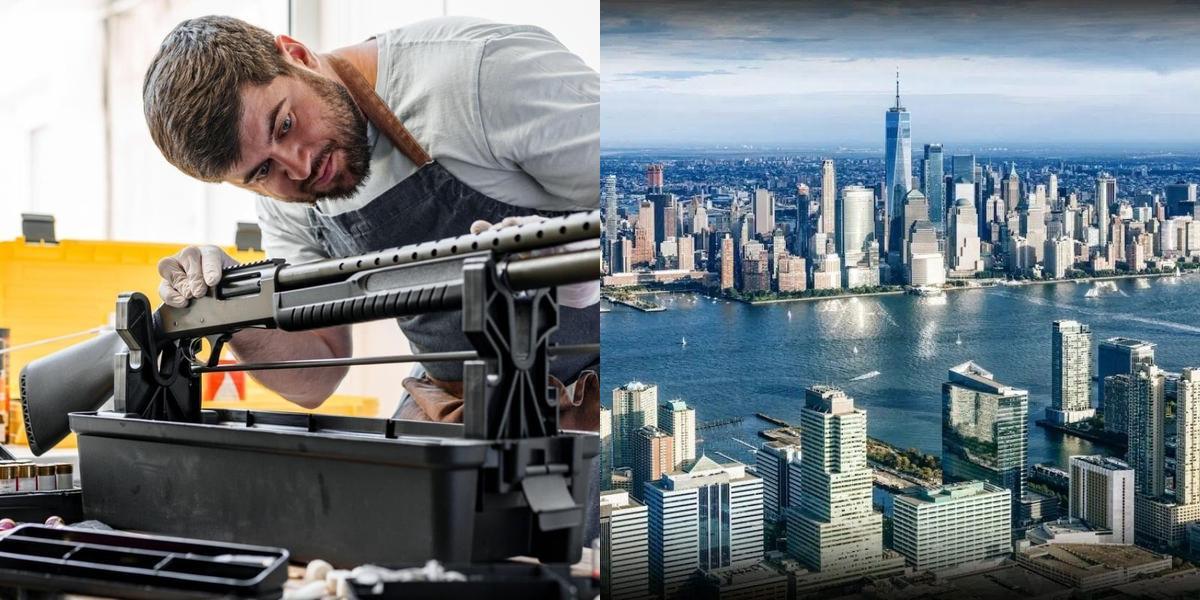How to Become a Gunsmith in New Jersey

Gunsmiths are professionals who repair, customize, and maintain firearms. In New Jersey, becoming a gunsmith involves both technical training and meeting legal requirements. For those with a passion for firearms and craftsmanship, this career offers the opportunity to work in a growing industry where safety, skill, and precision matter.
According to the U.S. Bureau of Labor Statistics, gunsmiths in the United States earn an average salary of $52,440 per year, or $25.21 per hour as of May 2024. While New Jersey-specific data isn’t published separately, earnings here tend to be slightly above average due to higher costs of living and demand for regulated firearms services.
Key Points
- Gunsmiths repair, customize, and build firearms, working with tools and materials like wood, metal, and polymer.
- In New Jersey, you need to complete a training program and obtain a Federal Firearms License (FFL) to work legally.
- Gunsmithing programs take between 6 months to 2 years depending on the credential (certificate vs. associate degree).
- Tuition costs range from $750 to $11,000, depending on the program type and length.
- The average salary for gunsmiths in the U.S. is $52,440 per year.
5. Start Gaining Experience
You can apply for jobs at:
- Gun shops
- Sporting goods retailers
- Manufacturers
- Armories
Or begin building your client base as a self-employed gunsmith (with all necessary licensing).
Where to Find Gunsmith Classes in New Jersey
Dreambound is the largest platform for students looking for vocational training. Use it to:
- Compare tuition and program lengths
- Read reviews from real students
- Explore online and in-person training options
- Filter by zip code, cost, or duration
Visit Dreambound or browse directly for gunsmithing classes in New Jersey.
Career Paths and Opportunities after Becoming a Gunsmith
Becoming a certified gunsmith in New Jersey opens the door to several career paths:
- Gun shop technician – Work directly with customers and handle firearm maintenance.
- Custom gun builder – Specialize in high-end or bespoke firearms.
- Firearm manufacturer employee – Work in quality control or production.
- Law enforcement armorer – Maintain weapons for police or military agencies.
- Gunsmithing instructor – Teach in vocational schools or community colleges.
- Self-employed gunsmith – Run your own business with full independence.
With experience and a strong portfolio, you may also consult or develop your own firearm components.
Frequently Asked Questions
What degree do you need to become a gunsmith?
A formal degree is not required, but most gunsmiths complete a certificate or associate degree in gunsmithing.
How long does it take to get an FFL in NJ?
It usually takes 30–60 days after submitting your application to the ATF.
What is the average gunsmith salary?
Gunsmiths earn an average of $52,440/year or $25.21/hour, according to the BLS.
Is it hard to get an FFL in New Jersey?
The process is more involved than in many other states. You must comply with federal, state, and local regulations, including zoning laws, background checks, and additional NJ-specific licensing.
Final Thoughts
Gunsmithing is a hands-on, highly specialized career that blends mechanics, craftsmanship, and precision. In New Jersey, the path to becoming a gunsmith includes formal training, licensing, and an understanding of both firearm function and compliance.
If you’re ready to take the next step, use Dreambound to find the right gunsmith training program near you. With the right skills and licenses, you can build a rewarding career that’s as technical as it is creative.
Looking for a better fit? These other articles could be more in line with your expectations if this one isn't precisely what you had in mind:

Justine Tacmo is part of the Growth team at Dreambound. He assists the organization by updating critical information so students receive the most up-to-date information for their desired trade schools. Besides, he has a passion for writing and expresses it through poetry, covering themes of life, love, and mental health, which is also his advocacy.



